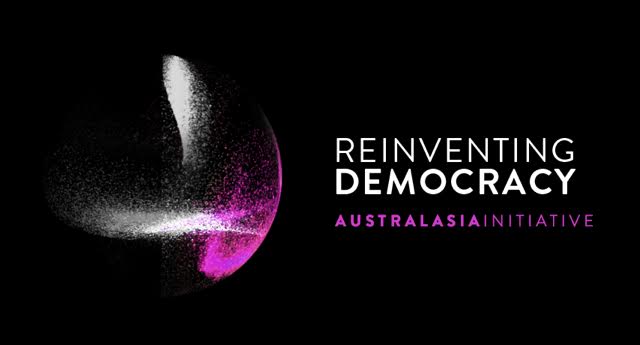Australasian Initiative: Difference between revisions
No edit summary |
No edit summary |
||
| Line 7: | Line 7: | ||
The key objective of this project is to increase youth participation in democratic governance by empowering young people from across the world to invent and propose new, innovative and concrete actions. More than 1000 young people will contribute with ideas face-to-face and virtually during five Co-Laboratories engaging ICT and structured democratic dialogue methodology. The process is designed to mobilize young people and to increase interaction among youth globally with the aim to advocate for and enable meaningful youth participation in democratic processes. | The key objective of this project is to increase youth participation in democratic governance by empowering young people from across the world to invent and propose new, innovative and concrete actions. More than 1000 young people will contribute with ideas face-to-face and virtually during five Co-Laboratories engaging ICT and structured democratic dialogue methodology. The process is designed to mobilize young people and to increase interaction among youth globally with the aim to advocate for and enable meaningful youth participation in democratic processes. | ||
*[[SDDP Reinventing Democracy - Challenges (Australasian Initiative)]] | |||
*[[SDDP Reinventing Democracy - Actions (Australasian Initiative)]] | |||
Latest revision as of 12:52, 28 April 2018
The Australasia Initiative of the Reinventing Democracy in the Digital Era project is coordinated by Future Worlds Center (FWC) and funded by United Nations Democracy Fund (UNDEF).
The project represents the global expansion of a series of previous project under the general title Reinventing Democracy.
The key objective of this project is to increase youth participation in democratic governance by empowering young people from across the world to invent and propose new, innovative and concrete actions. More than 1000 young people will contribute with ideas face-to-face and virtually during five Co-Laboratories engaging ICT and structured democratic dialogue methodology. The process is designed to mobilize young people and to increase interaction among youth globally with the aim to advocate for and enable meaningful youth participation in democratic processes.
- SDDP Reinventing Democracy - Challenges (Australasian Initiative)
- SDDP Reinventing Democracy - Actions (Australasian Initiative)
